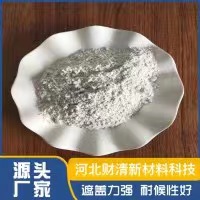
Дек . 01, 2024 10:10 Back to list
The Role of TiO2 in Manufacturing Processes and Applications
The Importance of TiO2 in Manufacturing A Comprehensive Overview
Titanium dioxide, commonly referred to as TiO2, is a white, opaque pigment that is widely used in various industries due to its exceptional properties. It plays a critical role in manufacturing, where it serves not only as a pigment but also as a functional additive in many applications. This article explores the significance of TiO2 in manufacturing, its key properties, and its diverse applications across different sectors.
What is Titanium Dioxide (TiO2)?
Titanium dioxide is a naturally occurring mineral that is refined from minerals such as rutile and ilmenite. It is known for its high refractive index, excellent UV resistance, and non-toxic nature. These characteristics make TiO2 an ideal choice for a wide range of products, from paints and coatings to plastics and cosmetics. Its brightness and opacity ensure that it delivers vibrant colors while providing coverage and protection.
Key Properties of TiO2
1. Pigmenting Ability TiO2 is one of the most effective white pigments available, providing outstanding opacity and brightness. Its ability to scatter light makes it a popular choice in the manufacturing of paints, coatings, and other products that require a white or bright finish.
2. Durability TiO2 exhibits remarkable stability when exposed to UV light, ensuring that products maintain their color without fading over time. This property makes it essential in outdoor applications, including automotive paints and architectural coatings.
3. Non-Toxicity Being non-toxic and chemically inert, TiO2 is safe for use in food, cosmetics, and pharmaceuticals. This safety profile has led to its inclusion in numerous consumer products.
4. Photocatalytic Properties TiO2 possesses interesting photocatalytic properties, which allow it to break down organic pollutants when exposed to sunlight. This feature has led to its use in environmental applications, such as self-cleaning surfaces and air purification systems.
Applications of TiO2 in Manufacturing
tio2 is manufacturer

1. Paints and Coatings The pigment industry is the largest consumer of TiO2, utilizing its properties to create high-quality paints and coatings. The pigment provides excellent coverage and enhances the durability of the coatings, making them more effective for a variety of surfaces.
2. Plastics In plastics manufacturing, TiO2 is used to improve opacity, brightness, and UV resistance. It helps manufacturers produce high-performance plastics used in durable goods, construction materials, and consumer products.
3. Cosmetics The cosmetic industry benefits from TiO2's non-toxic nature and ability to provide white opacity. It is widely used in sunscreens, foundations, and other beauty products due to its UV absorption capabilities.
4. Food Industry TiO2 is used as a food additive (E171) to provide color and opacity in products such as confectionery, dairy, and sauces. However, its safety in food products is under scrutiny, and regulations are evolving in different regions regarding its use.
5. Photocatalysis In recent years, TiO2 has gained attention for its photocatalytic properties. It is used in applications aimed at environmental remediation, such as water treatment, air purification, and the production of self-cleaning surfaces.
The Future of TiO2 in Manufacturing
As sustainability becomes a key focus in manufacturing, the demand for eco-friendly materials is rising. TiO2's ability to enhance the performance of products while being chemically stable and non-toxic makes it an appealing choice for manufacturers aiming to meet these new standards.
Furthermore, innovations in TiO2 production and use could lead to enhanced properties and new applications. The development of nanostructured TiO2 opens even more possibilities in fields such as electronics, energy, and environmental science, signaling a bright future for this versatile material.
Conclusion
In summary, titanium dioxide is a vital component in the manufacturing landscape, offering a unique combination of properties that enhance the quality and functionality of a wide range of products. From its traditional use in paints and coatings to its emerging applications in sustainability and health, TiO2 continues to pave the way for advancements in manufacturing processes. As industries adapt and innovate, the role of titanium dioxide will undoubtedly expand, solidifying its importance in both current and future manufacturing endeavors.
-
Premium Titania TiO2 Supplier & Manufacturer | Buy Online
NewsJul.20,2025
-
High Quality China Black Iron Oxide Powder Supplier Competitive Price & Fast Delivery
NewsJul.08,2025
-
High Quality Titanium Dioxide Used in Rubber – Trusted Supplier & Factory Price
NewsJul.08,2025
-
High Purity Barium Sulfate Particle Size - Wholesale Manufacturer from China
NewsJul.07,2025
-
Premium Titanium Dioxide Lomon R-996 Supplier – Quality & Wholesale Price from China
NewsJul.07,2025
-
Top Titanium Manufacturers in China - Quality Titanium Dioxide Supplier & Production Line Solutions
NewsJul.06,2025
